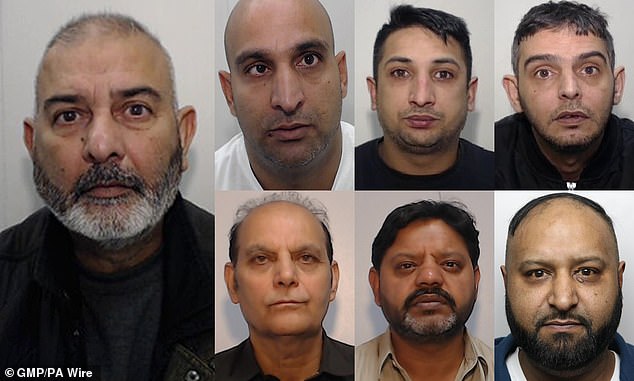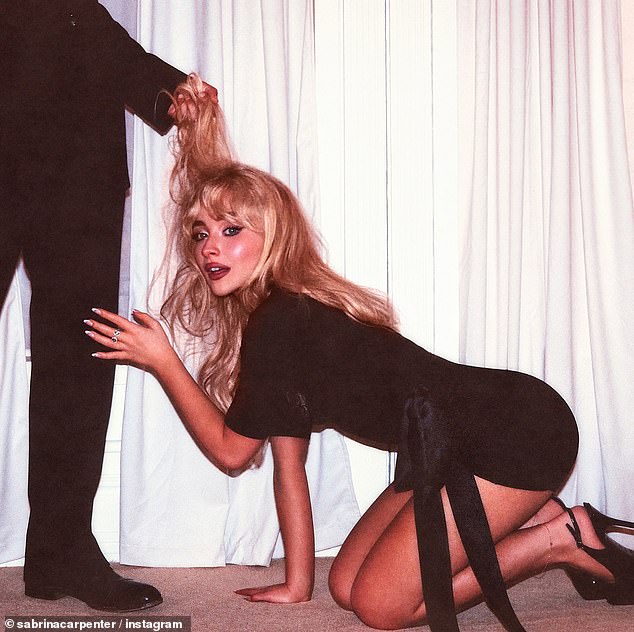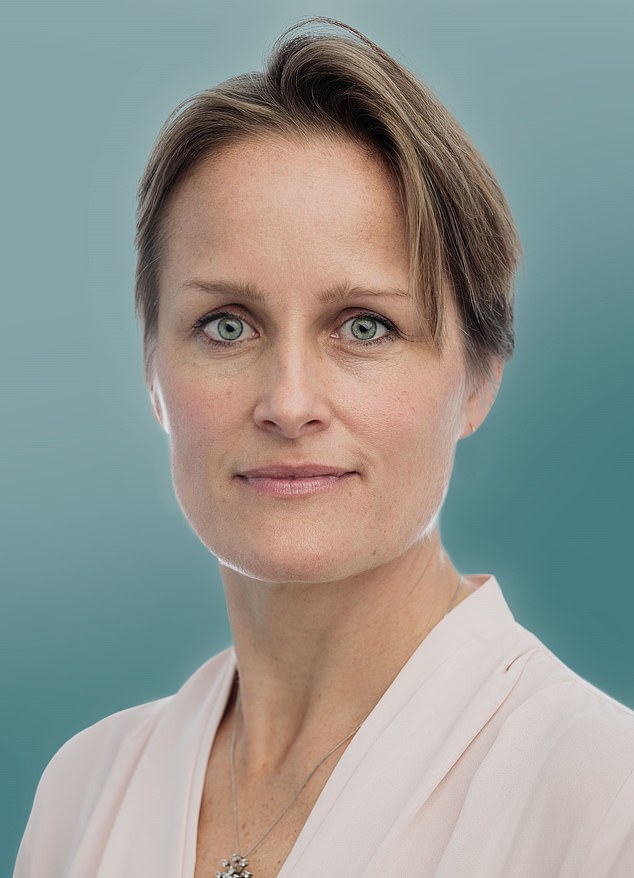Every time I encounter yet another horror story about the grooming gang scandal – and how the young rape victims were accused by police and social services of being prostitutes – my blood boils.
Child sexual exploitation is among the most heinous of crimes, but as a Yorkshire woman from a working-class background, it is harrowing reading about the grooming gangs in the towns near Barnsley where I grew up; personal, somehow.
I look back to my own teenage years and wonder how things spiralled downhill to such an extent. In the 1960s, groups of us 14 and 15-year-olds would meet after school and hang out at the Wimpy bar, drinking terrible coffee and having a laugh with boys from the neighbouring school.
There were often bobbies on the beat whom we knew well and I don’t think any of us worried about our safety. I certainly don’t recall any older men of any ethnic origin hassling us for attention.
The first I heard of grooming gangs was in 2003, while presenting Woman’s Hour. Ann Cryer had become MP for Keighley, West Yorkshire, and had expressed her concerns for some of the practices of which she was aware in her constituency. She was horrified by forced marriages, honour killings and evidence of gangs of men sexually abusing children.
She urged women to learn English and stand up for themselves. She was accused of racism and received death threats. The fears she raised gained scant attention. The police and social services were not interested.
Nothing much had changed, when, in 2012, I interviewed the first victim in Rochdale to speak about her experiences. Known only as Child A, she’d been the one in her group of friends who’d gone to the police.
Her abuse had begun when she was 15. By 2012 she was 19 and had been arrested for damaging the counter at the local kebab shop. At the police station, under arrest, she poured out her story.

Seven of the men who have been convicted of sexually exploiting teenage girls in Rochdale
She had befriended girls from school who had been frequenting kebab shops at night. The girls would be allowed to sit upstairs and listen to music. The men there gave them free alcohol, cigarettes and food, then drove them home. She started tagging along, thinking it was wonderful they were given things they couldn’t afford and weren’t old enough to buy. She felt she had no reason to fear the attention of these men. They were of Pakistani origin and were devout Muslims. She was sure their religious fervour meant they could be trusted as companions.
Until one evening when Ahmed asked her to come upstairs for a chat. That was the first time she was raped. From then on, she was simply used by any number of men over and over again.
I didn’t meet her face to face. I knew she was white, and had moved at 15 to live with a school friend who turned out to be related to one of the abusers. She was now back with her family. Her father had been supportive when her experience came to light.
She had agreed to talk to me on the phone, but you can read a lot about a personality from the quality of a voice. She was a well-spoken, highly intelligent young woman who told me she had wanted to become a social worker. She had won a place at university to do social work, but social services had rung the university which then decided she couldn’t do the course or work with vulnerable people. As has happened so often in these cases, the victim was made to take the blame.
I asked her why she hadn’t tried to escape her abusers. She told me it was impossible. Men would come to pick her up from school and threaten to kill her. She was too frightened to go home in case she put her parents at risk.
The school had wondered why a once clean and smart girl now wore smelly clothes and was covered in flea bites. She was too afraid to tell them she was sleeping in dirty flats being used for sex. School eventually told social services who told her parents she was a prostitute.
In 2012, she appeared in court to see nine of the men convicted of rape, trafficking girls for sex and conspiracy to engage in sexual activity with a child.
After the case, Child A had no support from social services or the police, but there was a panic button in the home she shared with her family in case any threats were carried out.
I don’t know what became of her. She was one of five girls involved in the court case, but she never wanted to speak to me again. I assume she just wanted to put it all behind her.
This week Maggie Oliver, who resigned from her role as a police officer in Greater Manchester in order to blow the whistle on the force’s failure to protect victims and arrest perpetrators, raised concerns that child sexual exploitation is still going on. To date, there have been at least 15 court cases around the country, ranging from Aylesbury to Newcastle, the latest in Bolton earlier this year.
It’s the biggest failure of child protection in UK history and, while the men behind it are slowly being brought to justice, none of the organisations – councils, police, social services – have been held accountable for the abominable way they treated the victims.
We now know from Baroness Casey’s report this week that there’s no consistent data about the crimes; that the ethnicity of perpetrators is ‘shied away from’ and still not recorded in two-thirds of cases, meaning it is not possible to draw conclusions at a national level.
Casey cited police figures from the 1990s which found almost 4,000 police cautions were given to children aged ten to 18 for offences relating to prostitution. It took until 2015 for the term ‘child prostitution’ to be dropped and replaced with ‘child sexual exploitation’, when the law changed in the Serious Crime Act.
She has demanded a national inquiry. I hope it’s done quickly and those paid to protect the young – police, social workers, councils and schools – stop being afraid of being accused of racism and tell us what they know.
Please, please, no, Sabrina

Sabrina Carpenter’s artwork for her upcoming album Man’s Best Friend
Sex sells and we’ve become only too familiar with the close connection between pop music and artwork that borders on porn. Madonna did it and nobody freaked out. But Sabrina Carpenter’s image for her album Man’s Best Friend makes me deeply uncomfortable. Some younger people argue the image is ‘fun’. No! A woman on her knees as a man pulls her hair suggests domestic violence and there’s nothing ‘fun’ about that. No wonder the star has deleted the post from her Instagram.
It only took 116 years!

Blaise Metreweli was recently announced as the first female head of M16 in its 116-year history
The name’s Metreweli – Blaise Metreweli, the first female head of MI6 in its 116-year history. She’s C, not M, having already been Q, and this is real life not fiction. Those steely blue eyes and the tight smile make me confident we will all be safe in her hands.
Remember: hot pavements burn

I know, I always complain about the weather – why won’t it stop raining, why won’t it start raining for the sake of the garden… and now, how will I cope in the 33c heat this weekend? Of course I know I’ll cope, but I am concerned about my pups. I wouldn’t want my bare feet on boiling hot pavements at midday. Early morning walks only for now.












